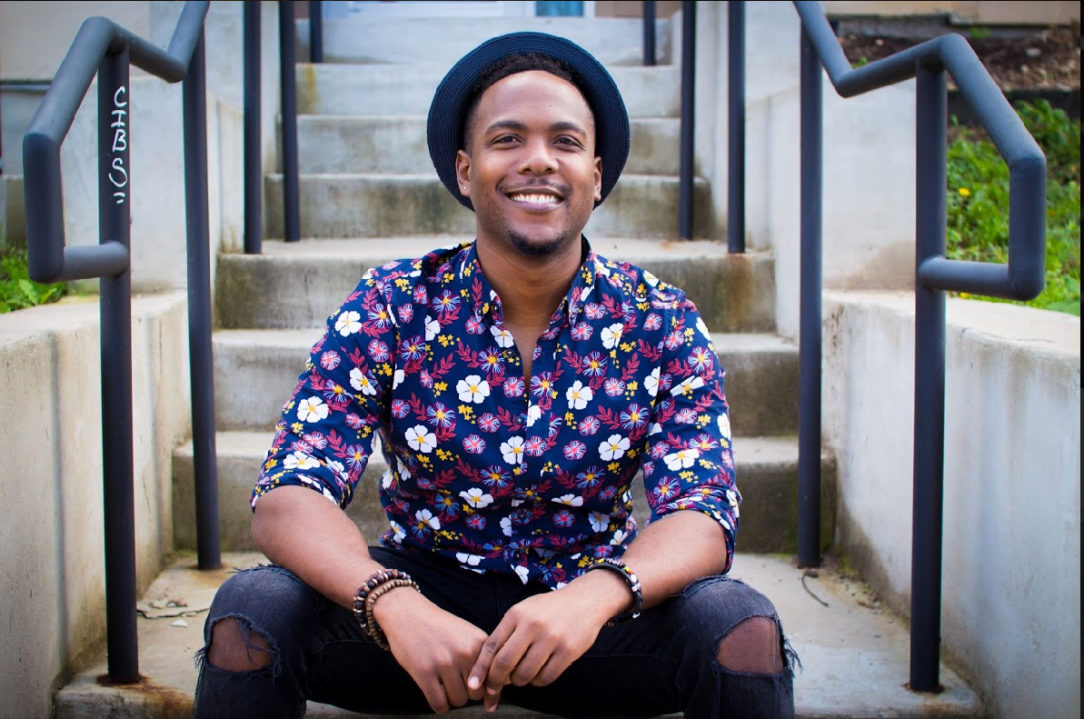
By Tarik Daniels
For some people, the holidays are a time when we are the happiest. People’s energies are uplifting, people are joyous and thankful. Spirits are running high and it’s usually a time for love, family, and friendships. Most of these feelings and actions are organic because they are usually taught behaviors through traditions and societal norms. Who wouldn’t want to get in the Christmas Spirit, no matter their religion, right? But for some of us, it is not as natural or “normal” to do so. For the sake of not being labeled a scrooge, the code of generosity, kindness, and charity toward others during these times are enforced by no one other than ourselves. It speaks to the social-rights and social obligations that we must have to each other in order to maintain a civil society, which in turns adds a level of pressure to our everyday lives that can have a significant impact on our mental health.“I see a surge of people feeling more depressed and anxious at this time of year,” said Asha Tarry, New York-based counselor and CEO of Behavioral Health Consulting Services LMSW, PLLC. “The levels of anxiety are higher and the cycles of depression are more common. As we experience less sunlight or reminders of loss of loved ones, finances, etc., people tend to become more depressed during the holidays, or experience more of ‘the blues.”
We must foremost recognize that for queer people of color, just simply living is a daily reminder of our suboptimal place in society. The holidays are no exceptions to facing the intersectionality of being queer and a person of color and the injustices we endure. Whether recently because of our political institutions and policy makers or the online hatred that attacks our very existence, we are forced to have a dual responsibility. A responsibility to keep our spirits up and push through and a responsibility to fight to bring about change for ourselves and our people. From the Bathroom Bills, which are controversial legislation that is being debated on regarding whether transgender individuals have the right to use a bathroom that aligns to their gender identity, to our president’s racists rhetoric towards our communities, feeling safe is not something that’s given to us but safety is definitely owed to us. It’s something that we must fight for. Living in a society of not being safe due to racism and homophobia is a strain on our mental capacity and sometimes all of it is just too much. Some of us have tools that we can rely on to get through, but simply put, most of us, if not all queer people of color, are suffering some form of Post Traumatic Stress Disorder. It’s not a diagnosis that we would typically get, but think about societal norms that hurt us all the time. It doesn’t take much to log on to social networks to see people type hateful things about people who look and love like we do. It doesn’t take much to turn on the news to see another Black man shot down, another Latinx family separated through deportation, or another transgender woman being killed at rates higher than the national average of murders committed. It’s true, no we don’t have to acknowledge it, but yes it does affect us. Social depression is a byproduct of Post Traumatic Stress Disorder and almost inevitable to escape, but recognition is key to overcoming it.
While holidays can bring all this joy to our lives, we must begin to recognize and create tools to help queer people of color navigate through social depression. Losing a job or not having a job around the holidays can be difficult for anyone. According to the National LGBTQ Task Force survey in 2017, 9% of Americans are unemployed and 13% of LGBTQIA workers are unemployed. and for trans and gender non-binary workers, the unemployment rate is even higher at 16%. Unemployment rates among transgender workers are 2 to 3 times higher than it is for the overall U.S. workforce. Money issues causes stress to the richest of people and can be devastating to the poorest of people, but when you layer that with the lack of equity and mistreatment, it can have lasting impact on our mental stability. Sometimes once our mental health goes unchecked for long periods of time, it can cause illnesses we didn’t see coming and that’s why it is important not to fall victim to the social obligation of gift buying and overextending yourself for the holidays.
Losing a family member, friend, and especially a parent or child can impact our lives forever. Every holiday can remind you of the loss in your life. You can be reminded of your favorite meal your mom or grandmother cooked during Thanksgiving and that smell can cause heartache. You can be reminded of that special gift your father gave you during Christmas and now Christmas hasn’t been the same since their passing. You might also be reminded of the lack of family in your life around the holidays due to family disowning you because you are LGBTQIA. Everyone‘s coming out story is different and some do not go as well as others. and Some find themselves estranged from their family, which can last for many years and many many holidays.
Holiday Depression is a revolving hurdle that some of us must overcome every year. More specifically, within our community, social depression is something that may never go away. Navigating through this country as a queer person of color is tough and losing a loved one, a job, or a home is tougher, and the holidays can really be hard. It can act as reminder for loss in our lives and make us feel isolated without the right support. But we must know we can make it through the holidays. We must take care of ourselves even more, when we find ourselves susceptible to low moods, low energy, or stress around these times.
We can start off by recognizing truths. Our truths of who we are, our societal truths, and truths of what our own reality is. Get purposeful in creating tools to cope during the holidays that is specifically designed for you and your needs. Make realistic expectations for the holiday season. Set realistic goals for yourself. Be realistic about what you can and cannot do—something we like to call ‘triggers’. Live “in the moment”. Enjoy the present. Look to the future with optimism. Be aware of your feelings and address them. If you are sad thinking about the loss of a loved one, express that to those who you trust and talk about it. There is no shame in grieving.
Suicidal thoughts can happen to the best of people and how to get through those thoughts depends on the work you are doing for yourself. Mental Health and Suicide can’t be topics that are too taboo to discuss when we have our people dying when they were just looking for an outlet and a voice. Queer people of color have flourished during the toughest times for years and I have no doubt in my mind that we will continue to be at the forefront in tackling mental health issues and suicide prevention for ourselves and for people as a whole. If we push forward, speak honestly, and spread love in doing the work, this holiday and for future holidays, we will be better prepared to deal with life issues and come out alive and in good spirits.

Tarik Daniels is a AfroQueer writer and author of the book, NO BONDS SO STRONG from Detroit, Michigan. He has written and produced four plays, THE COUNSELING SESSION, Rose University, STIGMA, and PrettyBoy Realness. His writings focus on telling stories about the realm of intersectionality and the bondage of queer people of color. Tarik founded and serves as Executive Director of Whatsinthemirror?, a social movement that provides mental health awareness and suicide prevention through art and advocacy to communities of color.


